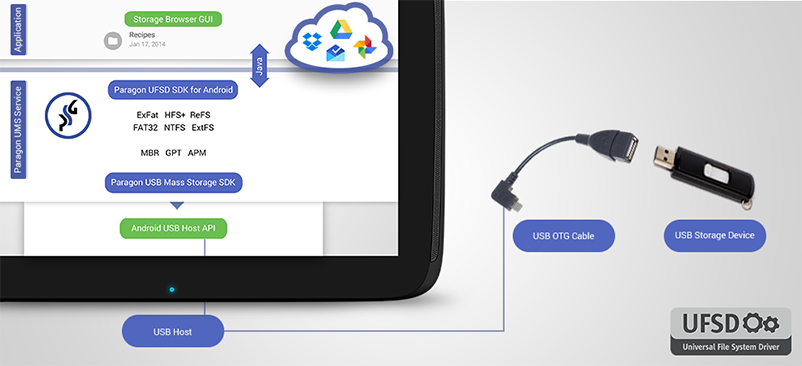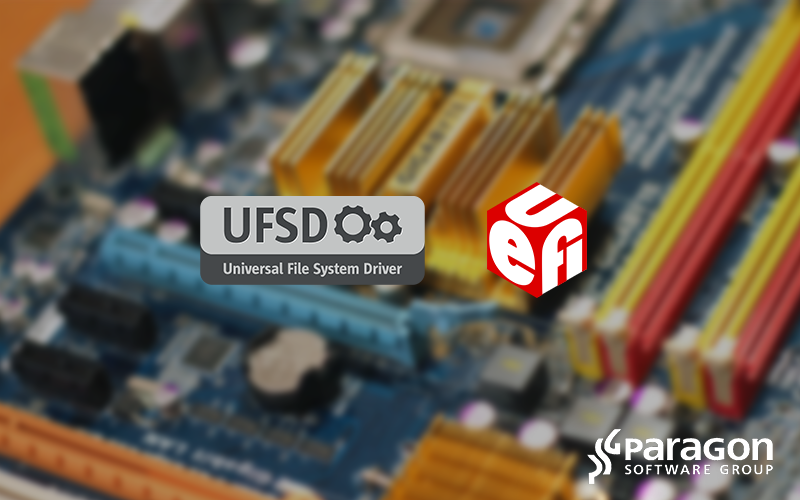#1 – Extra storage space instead of buying a new smartphone
The more storage space a mobile device has, the more expensive it costs. With Paragon’s USB plugin, you won’t need to spend more on storage space. Instead, just use an inexpensive portable storage device connected to your Android device using the USB OTG cable — the same way you already do it with your desktop computer or laptop. There’s no longer a need to replace your Android device when all you need is more storage space.
There are two simple ways to get extra storage space using Paragon Software:
- SD card: Add an extra 32-128 GB for less than $25
- USB Mass Storage Device: Use it for backup or to save multimedia no matter where you are
#2 – Connect with everything
Your boss or client uses an iPhone, but it’s too hard to transfer a presentation from your Android device. Paragon’s USB plugin supports multiple partitioning schemes and file systems, including NTFS, HFS+, and FAT32.
#3 – To be online or not to be? It’s no longer a question
You do not need to stay online all the time to work with data. Cloud storage is not yet the best way to share or work with multimedia and other common data. Even if you were in Antarctica, you can make data transfers between any device without mobile internet or Wi-Fi by using any SD card or USB Mass Storage Device you prefer.
#4 – Save & Share 4K videos and other high-resolution media
2016 will see an explosion of 4K and 8K video content, creating new storage demands for the video creation industry and tech-savvy consumers. Filming in 4K takes up about seven times more data than 1080p, so what’s the best solution for storing all of this data? You can simply use portable storage devices as a data bank, connected to your Android device using a USB OTG cable and Paragon’s USB plugin.
#5 – NTFS Support on Android without Root
Android does not yet natively support NTFS read/write capabilities (read more above). Most SD cards/pen drives arrive formatted as FAT32. Average users who prefer not to root their Android smartphones can now add NTFS support to Android from the Total Commander app and USB plugin developed by Paragon. Enjoy non-root communications!
Download and install Total Commander for Android, install Paragon USB plugin, connect NTFS, FAT32 or HFS+ formatted disks or other storage devices via USB OTG and enjoy instant, high-speed access.


